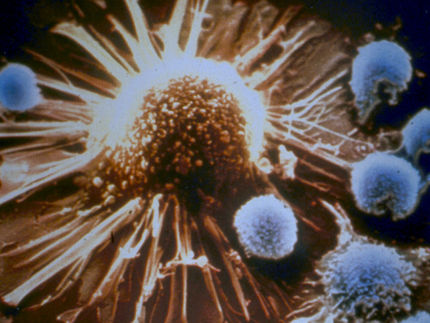Merck Announces FDA Orphan Drug Designation for Bifunctional Immunotherapy
Advertisement
Merck announced that the US Food and Drug Administration (FDA) has granted Orphan Drug Designation (ODD) to M7824, the first regulatory designation for the bifunctional immunotherapy, for the treatment of biliary tract cancer (BTC). The FDA orphan drug designation follows the recent presentation of the first clinical data for M7824 in BTC at the European Society of Medical Oncology (ESMO) congress in October. M7824 is an investigational bifunctional immunotherapy designed to combine co-localized blocking of the transforming growth factor-β and anti-PD-L1 immune escape mechanisms.
BTC is a collective term for a group of rare and aggressive gastrointestinal cancers, including intrahepatic cholangiocarcinoma (ICC), extrahepatic cholangiocarcinoma (ECC), and gallbladder carcinoma (GBC). Approximately 16,000 cases of BTC are estimated to occur every year in the US and collectively these cancers present late in the majority of patients. Treatment options are limited and the median survival rate in the advanced setting is less than one year, objective tumor response with commonly used chemotherapy is typically less than 10% with short duration of response.
“Biliary tract cancer is a rare, notoriously hard-to-treat tumor where existing treatment approaches, such as surgery or chemotherapy, are either not viable or simply don’t deliver acceptable patient outcomes,” said Luciano Rossetti, Head of Global Research & Development at the Biopharma business of Merck. “As the first regulatory designation for M7824, Merck is excited about the potential of this new class of immunotherapy in a number of challenging cancers and settings.”
The first clinical data for M7824 in BTC, presented at the ESMO congress in October, demonstrated clinical activity in Asian patients who had progressed after platinum-based first-line treatment. The ORR among the total of 30 patients was 20%, as assessed by IRC, and responses were observed across all PD-L1 levels with a duration of response ranging from 8.3 months to 13.9+ months. Grade 3 or higher TRAEs were experienced by 10 patients (33.3%) and the most common Grade 3 TRAEs were rash (10%) and lipase increase (10%).
FDA Orphan Drug Designation (ODD) is granted to medicines intended to treat rare diseases or disorders that affect fewer than 200,000 people in the US, or those that affect more than 200,000 people but are unlikely to recover the costs of developing and marketing the drug. Medicines that meet the FDA’s ODD criteria qualify for a number of incentives to help support advancement.
M7824 is an investigational bifunctional immunotherapy that combines a TGF‑β trap with the anti-PD-L1 mechanism in one fusion protein. Designed to combine co-localized blocking of the two immunosuppressive pathways, M7824 is thought to control tumor growth by potentially restoring and enhancing anti-tumor responses. M7824 is an important part of a novel combination approach that seeks to harness the power of the immune system and address the tremendously complex nature of difficult-to-treat tumors. To-date, more than 670 patients with various types of solid tumors have been treated across the program with M7824. In addition to BTC, M7824 is being studied in solid tumor indications, including non-small cell lung, HPV associated tumors and gastrointestinal cancers, such as gastric cancer, esophageal squamous cell carcinoma and esophageal adenocarcinoma.





















































